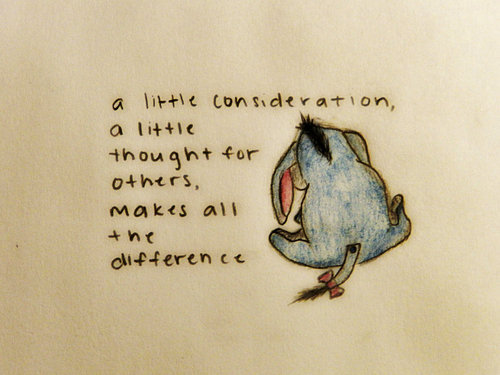One of the more powerful scenes in the film "Schindler's List" has the sadistic commandant of the Krakow-Plaskow concentration camp in conversation with Oscar Schindler. The commandant, Amon Goeth, had a practice of using the internees for his personal target practice. Picking up his rifle, he said to Schindler (something to the effect): "I can do this because I have the power." Schindler responds (to the effect) that "The best exercise of power is NOT to exercise it." Goeth put his rifle down -- at least for that moment.
I have been musing on power for the last week or so as I've been reading/watching the news about power struggles around the world -- especially in the Middle East and Africa. Whether it is governments wishing to put down rebellions, or pseudo-states trying to expand territory, or one group seeking to subdue another in the name of religion, most are resorting to physical force as the "power" to exert their will. It seems to me, however, that even if those "powerful" groups "win", they rarely do so with the admiration of the rest of us.
The attack -- the use of violent power -- in Paris against the publication "Charlie Hebdo" was reportedly in retaliation for "insulting" cartoons of the prophet Muhammed. Opinions differ on whether the prophet can be depicted in any form (even among Muslims). Similarly, opinions differ on whether violent retaliation should be the appropriate response to such depictions; many contemporary commentators point to the prophet's own (non-)response when insulted.* Clearly, some radicals felt they were defending the honor of the prophet. The world's -- including much of the Muslim world's -- reaction to the attacks, however, chiefly was horror, revulsion and anger. In the minds of most, the attach did little to advance the cause of Islam or to honor its founder.
I am reminded, too, with regard to religious leaders, that Jesus, on the occasion of his arrest, rebuked one of his followers for responding violently to the arresting authorities: " Put back your sword . . . Those who use the sword are sooner or later destroyed by it. Do you not suppose I can call on my Father to provide at a moment's notice more than twelve legions of angels?" (Matthew 26. 52-53, NAB). According to the New Testament, he had the power, but refused to use it.
And the debate about, and/or use of, power lies at the center of the story told by the film "Selma". Will the protestors resort to power/violence, or remain non-violent? How will those "in power" in Selma (and Alabama) use that power to respond to the threat to their "way of life"? How would the Johnson administration exercise its power? What the film emphasized was that a particular use of power -- the power of peoples' presence and peaceful protest, not the power of violence or weapons -- ultimately succeeded in changing things.
The world keeps turning, however, and struggles "won" are rarely concluded. I, for one, however, have to believe that new and continued conflicts will be won ultimately through the powerful forces of love and peace, rather than simply force.
Blessings,
I have been musing on power for the last week or so as I've been reading/watching the news about power struggles around the world -- especially in the Middle East and Africa. Whether it is governments wishing to put down rebellions, or pseudo-states trying to expand territory, or one group seeking to subdue another in the name of religion, most are resorting to physical force as the "power" to exert their will. It seems to me, however, that even if those "powerful" groups "win", they rarely do so with the admiration of the rest of us.
The attack -- the use of violent power -- in Paris against the publication "Charlie Hebdo" was reportedly in retaliation for "insulting" cartoons of the prophet Muhammed. Opinions differ on whether the prophet can be depicted in any form (even among Muslims). Similarly, opinions differ on whether violent retaliation should be the appropriate response to such depictions; many contemporary commentators point to the prophet's own (non-)response when insulted.* Clearly, some radicals felt they were defending the honor of the prophet. The world's -- including much of the Muslim world's -- reaction to the attacks, however, chiefly was horror, revulsion and anger. In the minds of most, the attach did little to advance the cause of Islam or to honor its founder.
I am reminded, too, with regard to religious leaders, that Jesus, on the occasion of his arrest, rebuked one of his followers for responding violently to the arresting authorities: " Put back your sword . . . Those who use the sword are sooner or later destroyed by it. Do you not suppose I can call on my Father to provide at a moment's notice more than twelve legions of angels?" (Matthew 26. 52-53, NAB). According to the New Testament, he had the power, but refused to use it.
And the debate about, and/or use of, power lies at the center of the story told by the film "Selma". Will the protestors resort to power/violence, or remain non-violent? How will those "in power" in Selma (and Alabama) use that power to respond to the threat to their "way of life"? How would the Johnson administration exercise its power? What the film emphasized was that a particular use of power -- the power of peoples' presence and peaceful protest, not the power of violence or weapons -- ultimately succeeded in changing things.
The world keeps turning, however, and struggles "won" are rarely concluded. I, for one, however, have to believe that new and continued conflicts will be won ultimately through the powerful forces of love and peace, rather than simply force.
Blessings,
